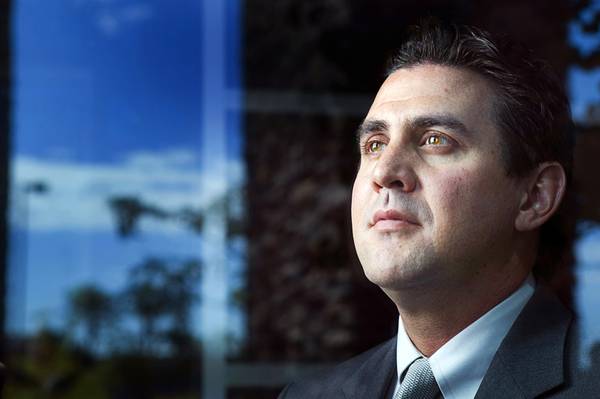Don’t worry, Las Vegas isn’t racing toward another economic cliff.
So said analyst Jeremy Aguero this morning to business, community and government leaders at the Las Vegas Global Economic Alliance’s Perspective event, an annual assessment of the local economy and forecast for the coming year.
Aguero, principal analyst for the Las Vegas firm Applied Analysis, said that as the city recovered from the recession and its economy had started growing again, he’d heard concerns from local residents that Las Vegas was moving too far too fast and recreating the bubble that took it down in 2008.
“Our community is going through some sort of post-traumatic stress disorder in terms of this ability to conceptualize the fact that we’re out of the recession and the economy is progressing,” he said. “I get that it created a lot of stress. (But) this community will not be judged based on our ability to survive a recession. This community will be judged on our ability to sustain our prosperity.”
Aguero made a statistical presentation showing that while Las Vegas was experiencing some of the same trends that led to disaster during the recession — a surge in construction jobs, rising housing prices and an increase in home building — the levels were nowhere near their pre-recession highs. He said today’s growth was more controlled and sustainable than during the go-go days before the crash of 2008, when the recession sent home values tumbling and stifled construction, leading to unemployment of nearly 15 percent and an exodus of residents.
Cases in point:
• Recent strides in reducing unemployment, which has slipped to 4.7 percent, have occurred despite an overall loss in construction jobs.
“We have 40,000 more employees in Las Vegas than we did at the peak of the economy,” he said. “And we did that with 40,000 fewer construction employees.” In 2007, there were 105,200 construction jobs in the metro area, accounting for 11.2 percent of the work force. Today there are 61,900, or 6.3 percent.
• In 2003-04, annual appreciation of home values was at 37 percent in Las Vegas, artificially fueled by reckless lending practices that made loans readily available. Today, annual appreciation is 8 percent — among the highest in the nation but nowhere near the out-of-control pre-recession level.
• Although construction cranes have returned to the Las Vegas Strip, Aguero said, concerns about overcommitting to development in the tourist corridor are unfounded. In 2007, $45.8 billion worth of projects were on the books for the Strip. Today, that number is $14.1 billion.
“Before we freak out that we’re all building too much … I think we should just put it all in a little bit of perspective,” he said.
Aguero said Las Vegas appeared to have learned lessons from the recession, as evidenced by efforts to diversify the economy through such initiatives as the creation of the UNLV medical school. Meanwhile, casinos are countering a decrease in gaming revenue by expanding their retail, dining and nightlife, making them less reliant on a single source of income.
Among other highlights of the event, held at Four Seasons:
• Barbara Atkinson, dean of UNLV’s new medical school, said the first class of 60 students would start July 17 with EMT training. Design of the facility is in its second phase, and university officials are hoping to break ground in the fall. The university is still looking for a $100 million mega donor for the project. Once fully operational, Atkinson said, the school will boost the local economy by $3.68 billion a year and will bring 22,000 jobs to the valley in the next 15 years.
• In the LVGEA’s annual Data Book of statistics and analysis, experts predicted that the valley’s population would grow 2.1 percent this year (or 46,300 residents) and personal income would rise 4 percent.


Join the Discussion:
Check this out for a full explanation of our conversion to the LiveFyre commenting system and instructions on how to sign up for an account.
Full comments policy